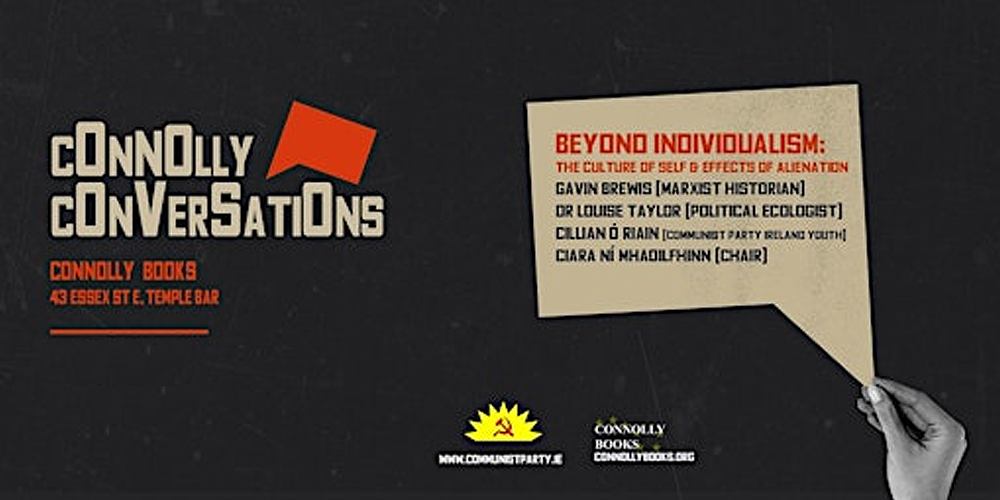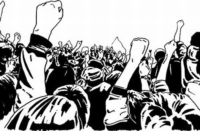The discourse around mental health has long been dominated by the psy disciplines, particularly psychiatry which has been influential in determining our understanding of “mental illness”. To do so it relies on the DSM – The Diagnostic and Statistical Manual of Mental Disorders. The DSM is used to diagnose and categorise human experience and, despite justified criticism of its utility, scope and ideological position, its impact on both the field of “mental health” and society at large has been extensive. The practice of diagnosis serves to legitimise psychiatry as a branch of medicine by positing that those in distress are suffering from an illness requiring intervention, often medical or pharmaceutical in nature. While this is problematic for many reasons, the scope of this article is to focus on the ways in which this diagnostic process is intertwined with capitalist agendas.
Diagnosis of a mental health disorder, per the DSM, props up a capitalist understanding of mental health as a “personal failing”, locating the distress within the individual. This de-contextualises and de-politicises the distress that is experienced, a process which is exemplified in the current conceptualisation of Post Traumatic Stress Disorder (PTSD). PTSD diagnostic criteria have been heavily critiqued by many, including Dr Samah Jabr who is head of mental health services in Palestine. Dr Jabr says that the DSM criteria for PTSD fail to capture the experience of victims of political oppression, for whom trauma is cumulative or continuous. The definition of trauma put forward by the DSM does not allow for acknowledgement of the most commonplace experiences of Palestinians under settler-colonial occupation. Dr Jabr says of the Western conceptualisation of PTSD: “especially lacking is the understanding that the multiple traumas inflicted upon Palestinians due to political violence also represent a collective trauma experienced by society as a whole… harms the integrity of the social fabric – its capacity to provide collective connections, trust, norms, worldviews and moral conventions.”
Dr Jabr’s comments highlight that, not only is the impact of political violence alienating on an individual level, but that this alienation becomes entrenched when we fail to recognise our collective experience of distress as being rooted in structural oppression, and we instead apply individual psycho-medical diagnoses. Bruce Cohen carried out a Marxist analysis of psychiatry, in which he levels criticism at the psy disciplines for their role in supporting capitalism by diagnosing socially and politically created problems as “individual cognitive or biological defects.” Cohen tracks the increase in terminology focusing on productivity and work throughout the DSM editions, from 10 instances in the first edition to over 400 in the current DSM-5. Cohen posits this increase to be representative of the extent to which psychiatry has positioned itself as “the authority on acceptable behaviour”, which it identifies with increasing frequency as behaviour that props up capitalism. Additionally, Cohen shows how the DSM and psychiatry serve to discredit and regulate behaviour that challenges structural inequalities under capitalism. Cohen tracks the number of words and phrases related to protest, such as “delusions of persecution” and references to “violence” from 11 in DSM-1 to 201 in DSM-5. Cohen points out that “the irony of psy professions’ focus on political violence as symptom of pathology is the denial of their own involvement in inflicting systematic institutional violence on others.”
The practice of “punitive psychiatry” involves the application of diagnostic criteria to discredit, undermine or institutionalise those whose ideas or actions pose a threat to the political and social order. While there are countless instances of this being applied to individuals who challenge the status quo, an example of this at a large-scale level is the inclusion of homosexuality within the DSM. Behaviour that was labelled as deviant and seen as threatening to a hetero-normative society was conceptualised as a mental illness and pathologised, enabling homophobic violence both within medical systems and in society more broadly. Arguably, we now see the same thing happening to the trans community, whereby trans identities are pathologised due to psycho-medical classifications that conceptualise gender diversity as a mental health issue requiring medical and psychological intervention. Where a diagnosis of “gender dysphoria” is required for access to gender affirming healthcare, psy disciplines function as gatekeepers. The stated purpose of such a diagnosis is to ensure access to medical transition for those who require it; however, in positioning itself as the authority on trans identities, it functions as an attempt to limit access to services for trans folks who do not conform in other ways to the norms of a capitalist, hetero-normative, ableist society.
Derek Summerfield who is a member of the Critical Psychiatry Network raises an important question regarding the use of “professional knowledge” to define lived experiences:
“Western scholarship has consistently failed to move beyond naivety and self-righteousness to confront the real, core question: in any particular setting, whose knowledge counts, and who has the power to define the problem?”
Within psychology and psychiatry, lived experience and self-knowledge is consistently denied, pathologised and invalidated in favour of hegemonic narratives about wellness and normal functioning that serve ultimately to label us as ill, alienating us from society and removing opportunities for recognition of common experience, forming connections and organising for change. There is an urgent need to interrogate the construction of distress as “disorder” rather than as a response to socio-political and economic conditions of social inequality, violence, oppression and poverty. Psychological healing cannot come about through individual therapy alone when the root cause of distress is social and political in nature, and ultimately it is collective connection and liberation that will be most transformative.
(This is one of the papers presented at Connolly Conversations 2024. The Connolly Conversations covered a wide range of topics. We intended to publish many of the papers.)






